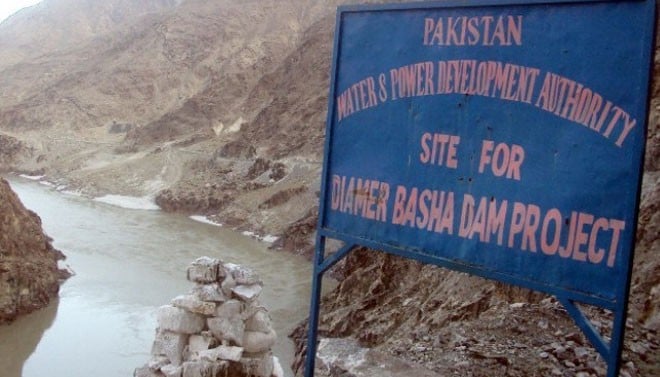
Many small run-of-the-river-hydroelectricity projects can be built to produce the much-needed electricity and irrigate vast tracts of land

The rivers of Khyber Pakhtunkhwa are important for a major contribution in not only irrigating millions of acres fields but generating power for the whole country. From the largest earth-filled Tarbela dam to the hydel units on River Swat in northern Pakistan, water is the main source of power generation for Pakistan.
Delay in the construction of major dams has already resulted in severe energy crises for the country, causing power breakdowns of upto 12-hours in summers. Though no major dam has been constructed in the country over the last many decades, hundreds of smaller projects are either under construction or going to be launched soon in Khyber Pakhtunkhwa.
"We are working on 30 run-of-the-river-hydroelectricity projects in the province. Some of them have been completed, few are under construction while others are in the feasibility stage," informs Bahadur Shah, the General Manager Hydel, Pakhtunkhwa Energy Development Organization (Pedo). "These projects will generate a total of 3,500 megawatt of electricity for the main grid," he adds.
"Under the medium-term projects, the construction of five dams of 250 megawatts is under construction in Mansehra, Dir, Swat, and Shangla. These are to be constructed by the end of this year," says Shah. Besides, 15 long-term projects with 2500 megawatt capacity are about to be started as their feasibility has been completed. The government is now looking for exploring finances for the project.
In northern Pakistan, hundreds of micro hydel units have been installed on rivers and water courses to produce water for hamlets, villages and a single family. Electricity in many villages of Chitral is being produced through smaller hydel units. In a majority of areas the locals pay around Rs 150 per house to generate salary for the caretaker of the hydel units and for doing any repairs if needed.
"We successfully run a micro-power project for our village. Initially, we got help from Sarhad Rural Support Programme for installation of the unit and now we are operating it on self-help basis," says Gul Hazar Shah of Mastuj in Chitral. The Ngo has built small hydropower projects in Chitral, Swat, and Gilgit Baltistan that are now being run by the locals. "Work on a two megawatt project is also underway in Chitral city by the SRSP," says Shah.
The KP government is working on 356 mini micro hydel units in 12 districts of the province. "The units will be able to generate 15 kilowatt to 500 kilowatt of electricity and will be able to provide power to one or two villages. The power generated through these projects will not be added to the main grid and the cost per unit will be around Rs2 that will be collected through community only for maintenance of the project," informs Bahadur Shah. Around 100 of these projects are about to be completed to start producing power.
According to the officials of the KP government, construction of 356 mini-micro hydel projects, costing Rs5.36 billion will be able to generate 34,000 kilowatt of electricity.
Out of these projects, 55 will be constructed in Chitral to produce 6,275 KW electricity. In Abbottabad, 34 projects would be launched that will produce 1,185 KW electricity. Around 26 projects have been planned in Mansehra with the generation capacity of 3,655 KW, 39 projects in Battagram with 4,238 KW, 20 in Torghar to produce 2,015 KW, 35 in Kohistan having capacity of 3,330 KW and so on.
The government is providing 80 per cent of the cost in the shape of funds while community organisations will have to contribute 20 per cent in the shape of labour and material besides contributing free land for the schemes’ allied structures.
As laid down in the work plan of the project, all 365 mini-micro schemes would be handed over to the local communities on their completion in the next 18 months.
"With the construction of a number of new dams, we are going to achieve the target of irrigating 4.20 million acres of land. Presently, the irrigated area is only 2.33 million acres out of the total cultivated area of 6.53 million acres," says Mahmood Khan, KP’s minister for irrigation.
The ongoing under construction small dams include: Jalozai and Gul Dheri dam Nowshera, Kiyala and Jhangra dam Abbottabad, Gadwalian dam Haripur, Palai dam Charsadda, Kundal dam Swabi, Sanam dam Lower Dir, Sitti Kali dam and Rocha dam in Bannu and Shah Kaleem dam Nowshera.